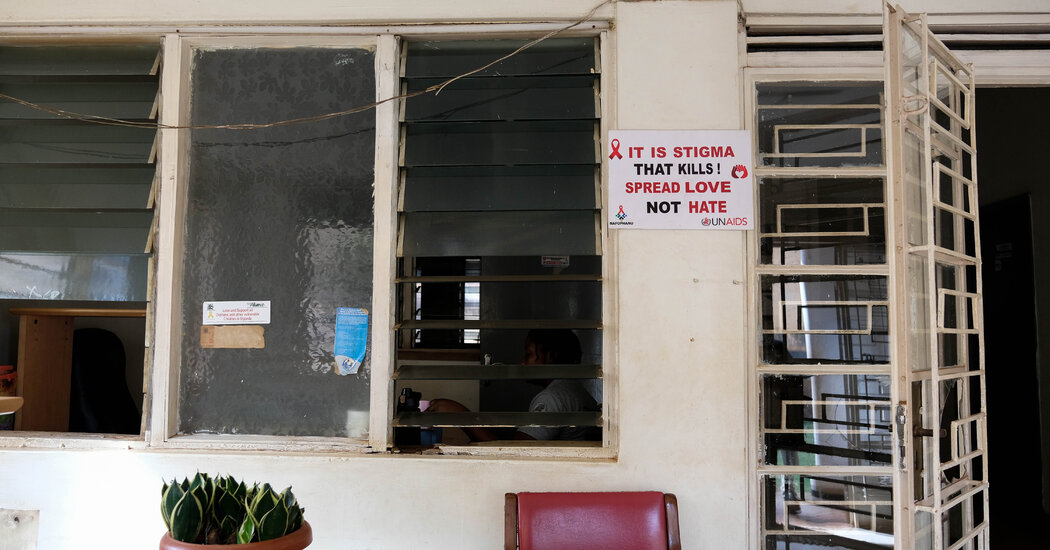Women are being turned away at clinics that provided maternity and reproductive care and cancer and H.I.V. treatment. Doctors and nurses have been placed on leave and told to go home. Across the globe, aid agencies say, decades of female-focused health care work has been “decimated overnight.”
Three weeks into President Trump’s suspension of all foreign aid, and already the impact on millions of women and girls is catastrophic and health care systems are “crumbling,” according to the United Nations and other women-focused global aid agencies.
“You can’t get treatment and you can’t get care because America has decided on a whim that you are not worthy, that is unfathomable,” said Elisha Dunn-Georgiou, president and chief executive of the Global Health Council. “We are in the fight for everybody’s lives.”
For example, as of Wednesday, about 2.5 million women and girls have been denied contraceptive care, said Dr. Elizabeth Sully, the principal research scientist at the Guttmacher Institute. That number will balloon to 11.7 million by the end of the Trump administration’s 90-day review process for foreign aid.
The Trump administration has frozen nearly all foreign aid pending a review “to identify programs that work and continue them and to identify programs that are not aligned with our national interest,” said Secretary of State Marco Rubio last week during a visit to the Dominican Republic. The United States Agency for International Development, or U.S.A.I.D., through which much of the aid for the women’s groups was distributed, has been essentially gutted and what remains will now be run out of the State Department.
At a panel organized by the United Nations, representatives from the United Nations Population Fund, the Global Health Council, MSI Reproductive Choices, the Guttmacher Institute, the Planned Parenthood Federation of America, and the Universal Access Project at the U.N. Foundation said they had come together to sound the alarm.
They described a chaotic breakdown of operations along the health care supply chain, with decades of trust-building in communities having been decimated overnight.
The State Department did not respond to a request for a comment.
The United States has for the past five decades been a top leader in donations and investments in global health, providing some 40 percent of all donations for global family planning, mostly through U.S.A.I.D., said Dr. Sully.
Mr. Rubio has said that the United States will issue emergency waivers for humanitarian work and that lifesaving aid such as food and medicine are not included in the freeze. But global aid agencies contest that claim, saying that the waivers are nonexistent in the places where programs operate. Staff members who would process them are on leave, and pleas to U.S. officials have not been answered.
“If you are hearing from the U.S. government there is a waiver, that is a lie,” said Ms. Dunn-Georgiou from the Global Health Council. She added that for global health agencies, a top concern is that programs related to family planning and contraceptives could disappear permanently. The State Department did not respond to requests for comment on the waivers.
In the first week of his presidency, Mr. Trump reinstated a longstanding Republican anti-abortion policy that bars federal funding from going to any overseas nongovernmental organization that performs or promotes abortions.
“Already the Trump administration has attacked services and systems that keep millions of people safe and healthy in our country and around the world,” said Caitlin Horrigan, senior director of Global Advocacy for Planned Parenthood Federation of America.
Dr. Carole Sekimpi, senior director of MSI Africa, a family planning agency that provides contraception and abortions to women, said fear and anxiety were prevalent with all the programs across Africa that receive aid from the United States closed and their staff members sent home.
She said in her country, Uganda, hundreds of physicians providing H.I.V. care have been told to go home. “Most of these organizations will collapse because they are one hundred percent reliant on aid from U.S.A.,” Dr. Sekimpi said.
The U.N.’s agency focused on women’s reproductive and health rights, UNFPA, said its programs across the world are affected because the United States provides over 30 percent of the agency’s funding. For the past four years that amounted to $725 million helping provide mental health care to women in Ukraine, women displaced in Chad and maternal care for Afghan women.
Rachel Moynihan, deputy director of UNFPA’s North America program, said the suspension of services and breakdown of trust has jeopardized U.S. investments at the U.N. agency. It also put in peril local government’s investments in their own health care systems, which the U.N had encouraged them to do.


